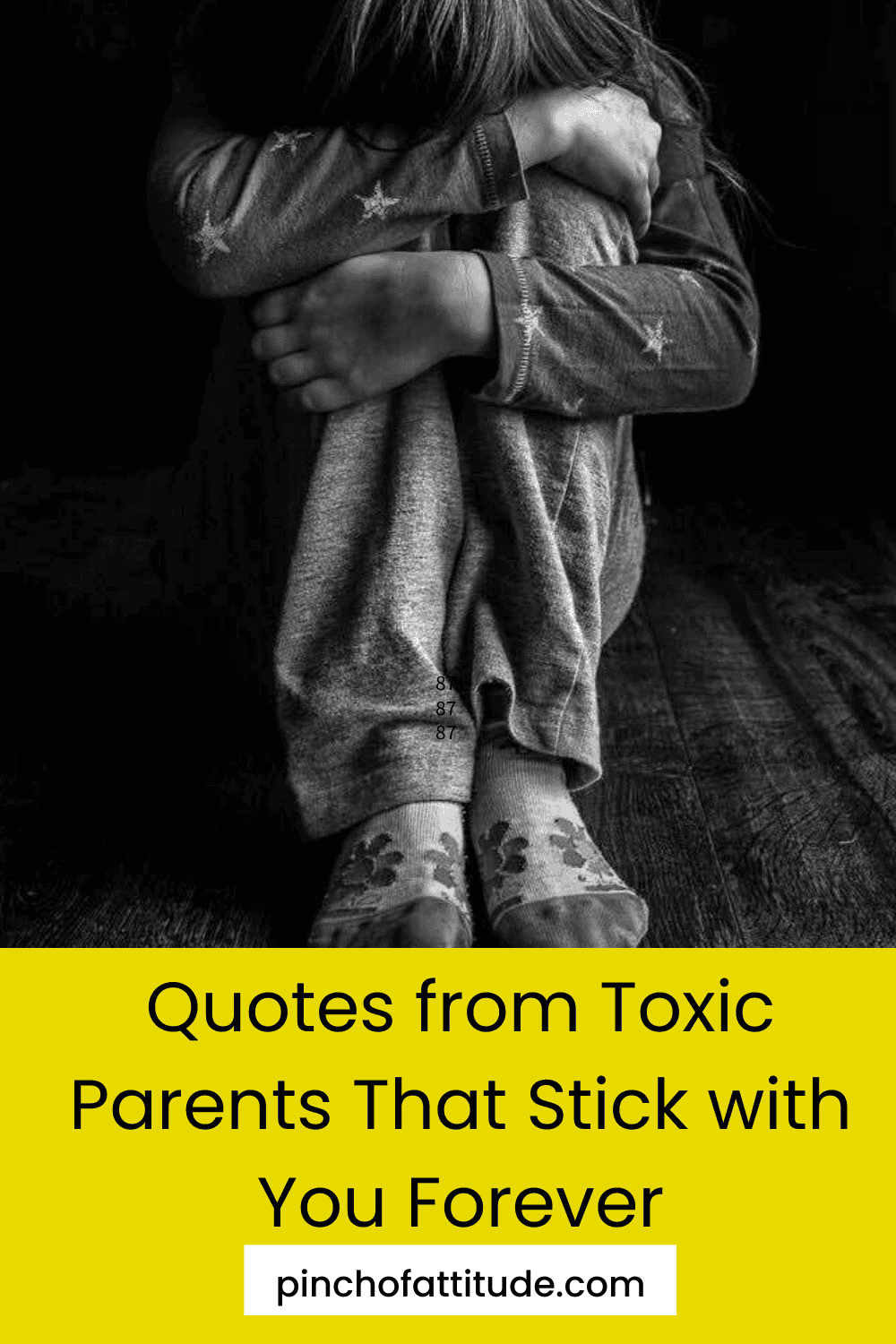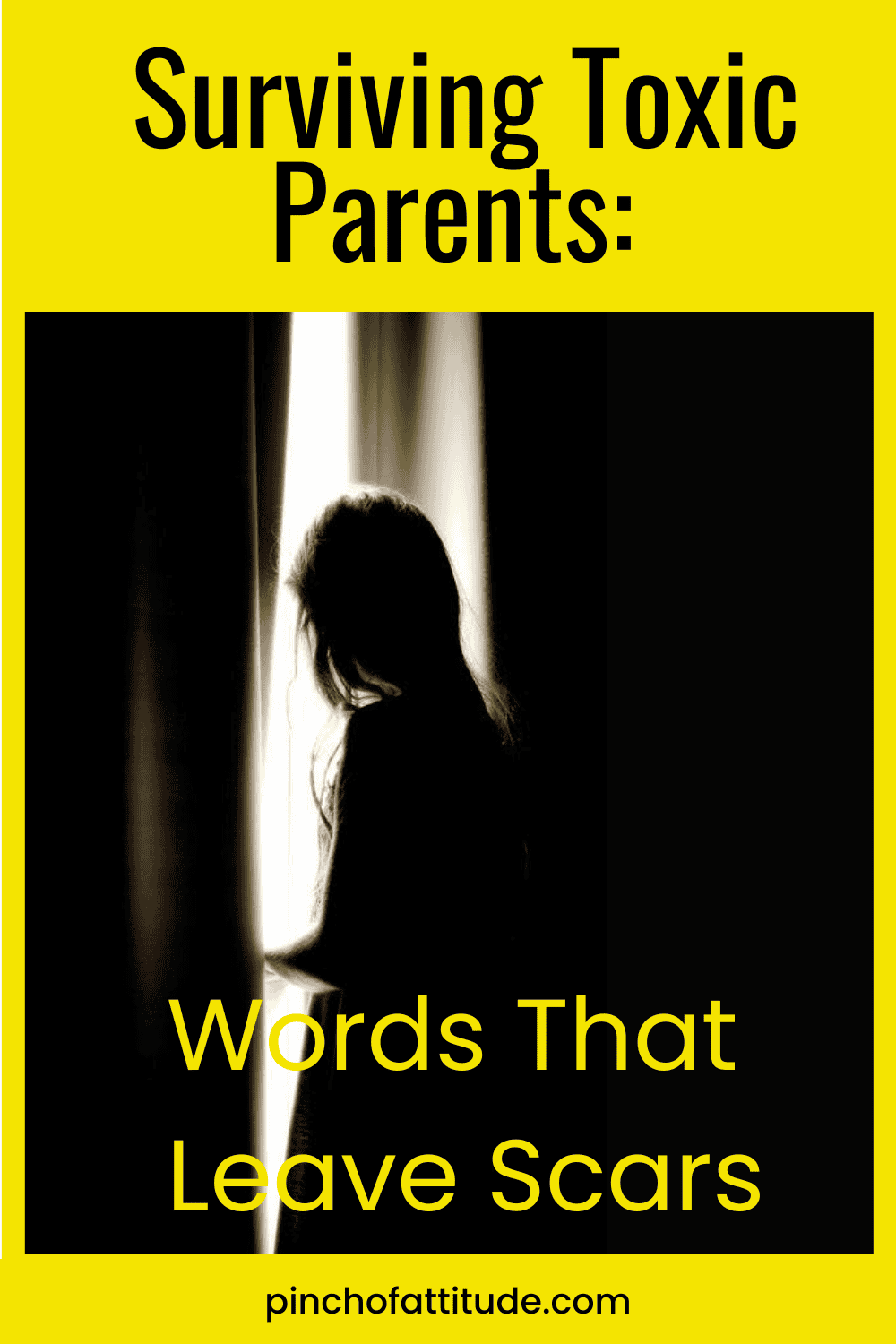Growing up with toxic parents is like navigating a minefield. One wrong step, and boom! You’re hit with a barrage of harmful words and actions that can leave lasting scars.
It’s tough, and if you’re reading this, you probably know exactly what I’m talking about. Maybe you’ve heard these same toxic phrases, or maybe you’ve experienced different but equally damaging words.
The important thing is to recognize them for what they are: toxic.
Here are eight things toxic parents often say to their children (my mom said those things to me for years), and why they’re so harmful. Let’s dive in and break it down.
- Recognizing and addressing toxic statements from parents is crucial for healing and building self-worth.
- Embracing your individuality and rejecting unfair comparisons can help you reclaim your confidence and value.
- Building a support network and focusing on self-reliance can empower you to overcome the negative impacts of toxic parenting.
Table of Contents
1. Making Unhealthy Comparisons
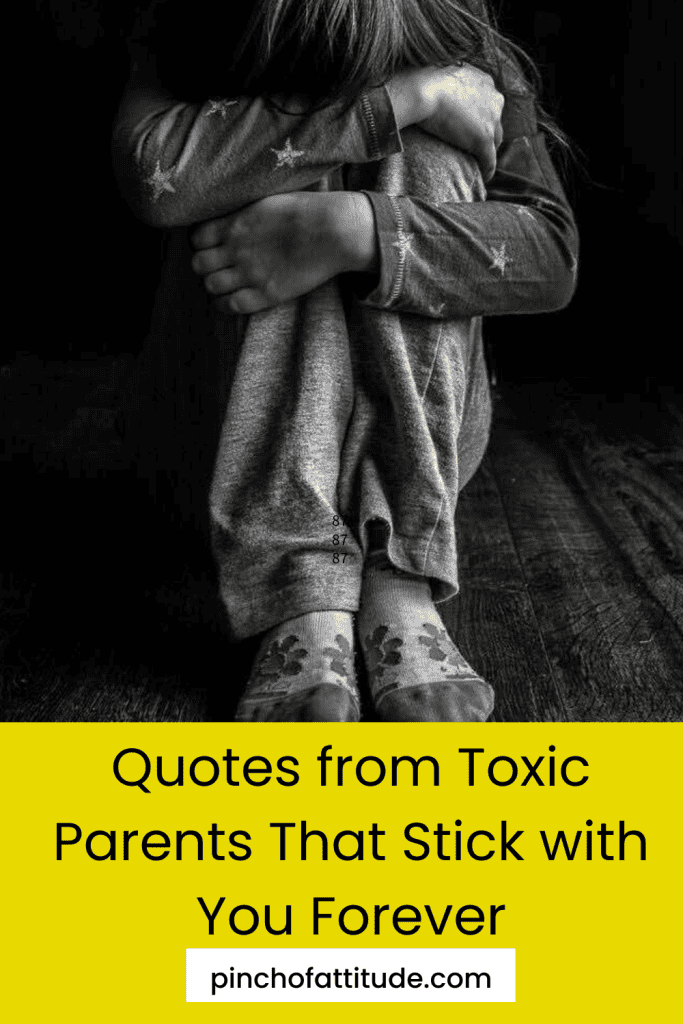
“Why aren’t you like your brothers, relatives, or other children?”
“Other kids are smarter than you.”
You know those moments when your parents decide to compare you to every other child in the universe? It’s like being part of a never-ending competition you never signed up for. These comparisons are not only unfair but also deeply damaging.
They create an environment where you feel perpetually inadequate and constantly striving to meet unrealistic expectations. It’s as if your unique qualities and accomplishments are completely overlooked in favor of some idealized version of what a child should be.
Hearing phrases like “Why aren’t you like your brothers, relatives, or other children?” or “Other kids are smarter than you” can make you question your worth and abilities. It instills a sense of inferiority that can be hard to shake off. This constant comparison can lead to a lifetime of self-doubt and a feeling that you are never good enough.
But guess what? You are not your brother, cousin, or that kid next door. You are you, and that’s more than enough. Your individuality is what makes you special. Your strengths, talents, and even your quirks are what define you.
It’s important to remember that everyone has their own path and pace. Just because someone else excels in one area doesn’t mean you have to match or surpass them in the same way.
If you find yourself trapped in this cycle of comparison, try to shift your focus. Celebrate your achievements, no matter how small they might seem.
Acknowledge your progress and remind yourself of the unique qualities that make you who you are. Surround yourself with people who appreciate you for being you, not for how you measure up against others.
In the end, it’s your life to live, and you don’t need to conform to someone else’s standards to be valued. Embrace your uniqueness and take pride in your journey.
You’re not in a competition, and your worth isn’t determined by how you stack up against others. You’re perfectly fine just the way you are.
2. Criticism Towards a Child for Acting Like a Child

“Why are you behaving so strangely?”
“What are you doing walking that way?”
“How come you chew like that?”
“Why do you move or speak like that?”
Because, apparently, there’s a manual on how to walk, chew, and exist that we all missed out on. Seriously, who knew being yourself could be such a crime? When parents criticize you for acting like a child, it’s incredibly confusing and disheartening. These remarks make you question every natural behavior and create a sense of constant self-consciousness.
Criticizing you for the way you walk, talk, or even chew sends the message that there’s something inherently wrong with you. It’s like your parents expect you to behave like a miniature adult, ignoring the fact that you’re still learning and growing.
These criticisms can make you feel like you’re always under a microscope, leading to anxiety and a lack of self-confidence.
But here’s the truth: there is no “right” way to be yourself. Walking, talking, and chewing are all personal to you, and there’s no need to conform to some arbitrary standard. It’s perfectly normal to have your own mannerisms and quirks. They’re part of what makes you unique.
If you’ve been subjected to this kind of criticism, try to embrace your natural behaviors. Remind yourself that it’s okay to be different and that there’s no need to change just to fit someone else’s idea of normal.
Surround yourself with people who accept you as you are and don’t make you feel self-conscious about every little thing. In the end, being yourself is the best way to live. Don’t let anyone make you feel bad for simply being you. You’re not strange or wrong; you’re just wonderfully unique.
3. Making Selfish Wishes
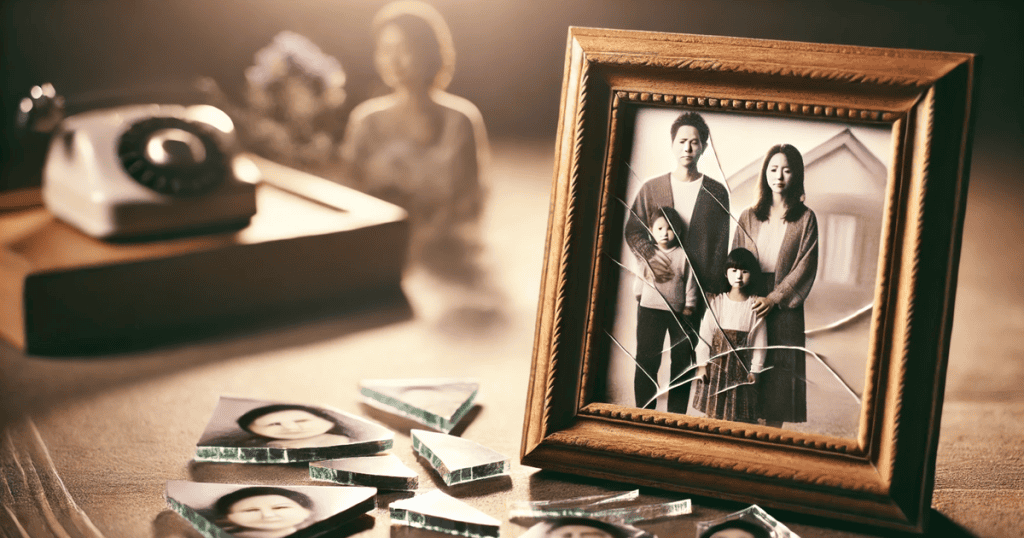
“I wish you hadn’t been born.”
“I wish I could have had an abortion, and I’m sad to have you.”
“I wish you weren’t the way you are.”
Talk about hitting below the belt. These are the kind of statements that stick with you like gum on a shoe. It’s hard to shake off but remember, their issues aren’t your fault. Hearing your parent wish you hadn’t been born or express regret about having you is deeply hurtful and can leave lasting emotional scars.
Such statements are the epitome of selfishness, reflecting more on their own struggles and shortcomings than on anything about you.
These words are often said in moments of frustration or anger, but that doesn’t make them any less damaging. They can make you feel unwanted and unloved, leading to feelings of worthlessness and depression.
But here’s the reality: you didn’t ask to be born, and your existence is not a mistake. You have every right to be here and to live your life to the fullest. Your parents’ regrets or wishes have nothing to do with your value as a person. You are here, and that is something to be celebrated.
If you’ve been subjected to these kinds of wishes, focus on building your self-worth. Surround yourself with people who appreciate you and see your value. Engage in activities that make you feel good about yourself and reinforce your sense of worth.
Remember, you are not defined by your parents’ words or wishes. You have the power to create a positive and fulfilling life for yourself, regardless of their negativity. You are deserving of love and happiness, just as you are.
4. Complaining About the Difficulties of Raising a Child
“It cost me a lot of money because of you.”
“It’s tough having you since it’s so difficult to take care of you.”
Wow, thanks for the guilt trip! As if you had a choice in the matter. It’s like they think you came with an instruction manual that they never read.
Complaining about the cost and difficulties of raising you places an unfair burden on your shoulders, making you feel like a financial and emotional drain.
These complaints can lead to feelings of guilt and shame, making you question your worth. You didn’t choose to be born or to be a burden, and it’s unfair for parents to make you feel responsible for their struggles. Raising a child comes with responsibilities, but that’s part of being a parent.
If you’ve heard these complaints, it’s important to remind yourself that you are not a burden. You are a person with your own needs and rights. Your parents’ decision to have children was their choice, and the difficulties that come with it are their responsibility, not yours.
Focus on building your own sense of worth independent of their complaints. Engage in activities that make you feel valued and appreciated. Surround yourself with supportive people who uplift you rather than bring you down.
Remember, you deserve love and care without feeling guilty for existing. Your worth is not defined by the difficulties your parents face. You are valuable just as you are.
5. Criticism of a Child’s Physical Appearance

“You’re ugly, too fat, too small, or too skinny.”
“You have bad hair.”
If I had a dollar for every time I heard something like this, I’d be a millionaire. Criticizing your physical appearance is one of the most damaging things a parent can do. These comments can create deep-seated insecurities that are hard to overcome, making you feel unattractive and unworthy.
Hearing phrases like “You’re ugly” or “You have bad hair” can make you overly self-conscious and critical of your own body. It’s like being constantly told that you don’t measure up to some impossible standard. These criticisms can lead to long-term issues with body image and self-esteem.
But here’s the truth: your body is yours, and it’s perfect just the way it is. Beauty is subjective, and everyone has their own unique charm. What’s most important is how you feel about yourself, not what anyone else thinks.
If you’ve been subjected to this kind of criticism, work on developing a positive body image. Focus on what you like about yourself and practice self-love. Engage in activities that make you feel good about your body, whether it’s through exercise, fashion, or simply taking care of yourself.
Surround yourself with positive influences that affirm your worth. Follow body-positive influencers on social media, read empowering books, and spend time with people who appreciate you for who you are, not just how you look.
It’s also important to challenge these negative thoughts. Whenever you catch yourself being critical of your appearance, remind yourself that these ideas were planted by someone else and that you have the power to change your narrative.
Practice self-affirmations and remind yourself daily of your unique beauty and worth.
Remember, your worth isn’t determined by your physical appearance. You are valuable for who you are inside, and that shines through regardless of your external features. Embrace your individuality and let your confidence be your true charm.
6. Using Offensive Words and Statements
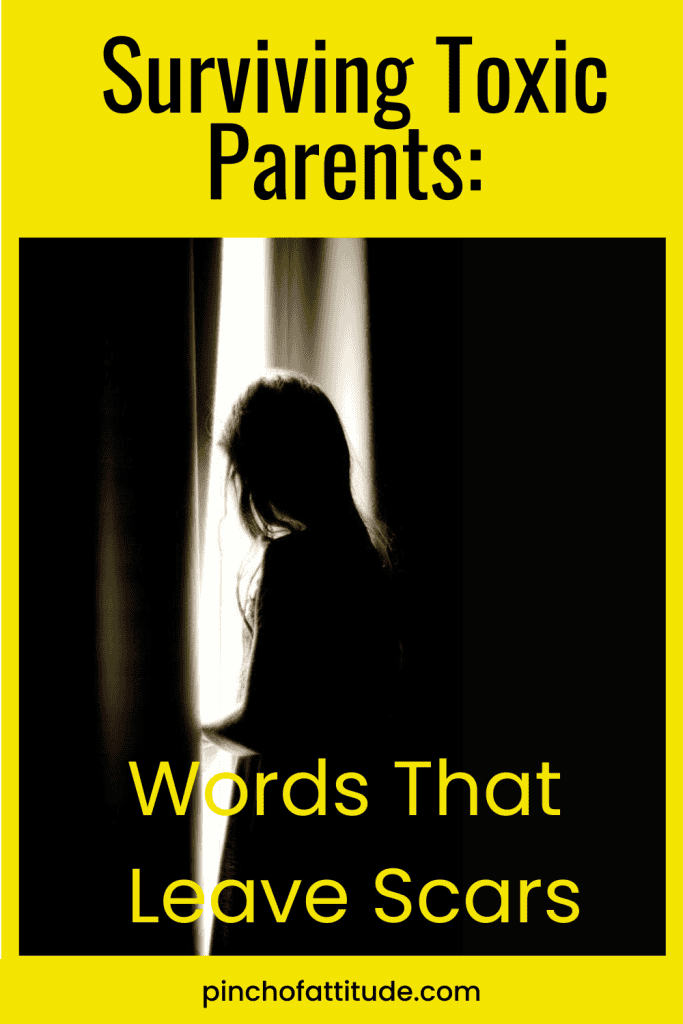
“You’re dumb, useless, and a zero!”
“You’ll never do it!”
Nothing says “supportive parenting” like calling your kid dumb. Newsflash: Words have power. Offensive words and statements are like verbal poison, slowly eroding your self-esteem and confidence.
Being told you’re dumb or useless can make you internalize these negative beliefs, impacting your ability to achieve your potential.
But here’s the thing: you are not defined by these words. Just because someone says something hurtful doesn’t make it true. Everyone has strengths and weaknesses, and intelligence isn’t measured by a single standard. You are capable of more than you might realize, and these statements are merely reflections of your parents’ frustrations, not your abilities.
If you’ve been subjected to this kind of verbal abuse, focus on proving them wrong—not for their sake, but for your own. Set goals for yourself and take steps toward achieving them, no matter how small they might be.
Celebrate your victories and learn from your setbacks. Surround yourself with people who believe in you and encourage you to reach your potential.
Remember, success is the best revenge. By thriving and proving to yourself that you can do it, you not only rise above the negativity but also reclaim your power. You are capable, intelligent, and worthy of all the good things life has to offer.
7. Threatening to Leave
“I’m going to leave you, set you aside.”
“When you wake up, you’ll never see me again.”
“I’ll just vanish.”
Because that’s not traumatizing at all, threatening to abandon you is one of the most distressing things a parent can do.
It creates a constant fear of being left alone and can lead to deep-seated trust issues. These threats are often used as a means of control, making you feel insecure and dependent.
But here’s the truth: these threats are usually empty and designed to manipulate your emotions. While the fear they induce is very real, it’s important to remember that their aim is to control, not to reflect any real intention.
If you’ve been subjected to these kinds of threats, focus on building your independence and resilience. Recognize that you have the strength to stand on your own, even if it feels scary.
Surround yourself with a support network of friends, family, or professionals who can offer stability and reassurance.
Work on developing self-reliance and trust in your own abilities. Know that you are capable of handling life’s challenges, even if those who should have supported you threaten to withdraw their presence. You are stronger than you think, and you can thrive independently.
8. Making Hollow Promises

“I’ll buy you this if you do this.”
“I’ll take you there next time.”
Ah, the classic bait-and-switch. Nothing builds trust like a broken promise. Hollow promises are a common tactic used by toxic parents to manipulate behavior. They promise rewards for good behavior or achievements but rarely follow through, leading to disappointment and mistrust.
These empty promises can make you feel unworthy of consistent love and support. They teach you to expect little and trust less, which can carry over into your adult relationships and interactions.
If you’ve been subjected to hollow promises, it’s important to set realistic expectations and understand that your worth isn’t tied to these unmet promises. Learn to value consistency and honesty in relationships, and practice these qualities yourself.
Focus on creating your own rewards and incentives for your achievements. Recognize your efforts and celebrate your successes, no matter how small. Surround yourself with people who keep their word and value integrity.
Remember, you deserve reliability and truthfulness. By setting these standards in your life, you can break the cycle of disappointment and build a future based on trust and mutual respect. Your worth is not defined by broken promises but by your ability to rise above them and create a life filled with genuine connections.
Related Posts:
- 30 Things Narcissistic Fathers Say: How to Verbally Disarm Them
- Narcissist Parent: How I Understood and Protected Myself From Their Toxic Traits
- 5 Ways Your Childhood Trauma is Sabotaging Your Happiness
- 11 Unique Strategies on How to Deal With Narcissist Parents: Healing Is My Focus
- 13 Steps to Healing From a Narcissistic Parent: How I Moved Forward When Moving Away
Frequently Asked Questions
How can I cope with the emotional impact of toxic parenting?
Focus on self-care, seek therapy if needed, and surround yourself with supportive people.
Why do toxic parents make harmful comparisons?
They often project their insecurities and unrealistic expectations onto their children.
What should I do if my parent constantly criticizes my appearance?
Remind yourself that their opinion doesn’t define your worth and focus on developing a positive body image.
How can I rebuild trust after experiencing broken promises from my parents?
Establish relationships with people who demonstrate reliability and integrity, and set realistic expectations.
Is it possible to overcome the effects of verbal abuse from parents?
Yes, through self-affirmation, therapy, and surrounding yourself with positive influences, you can heal and thrive.

